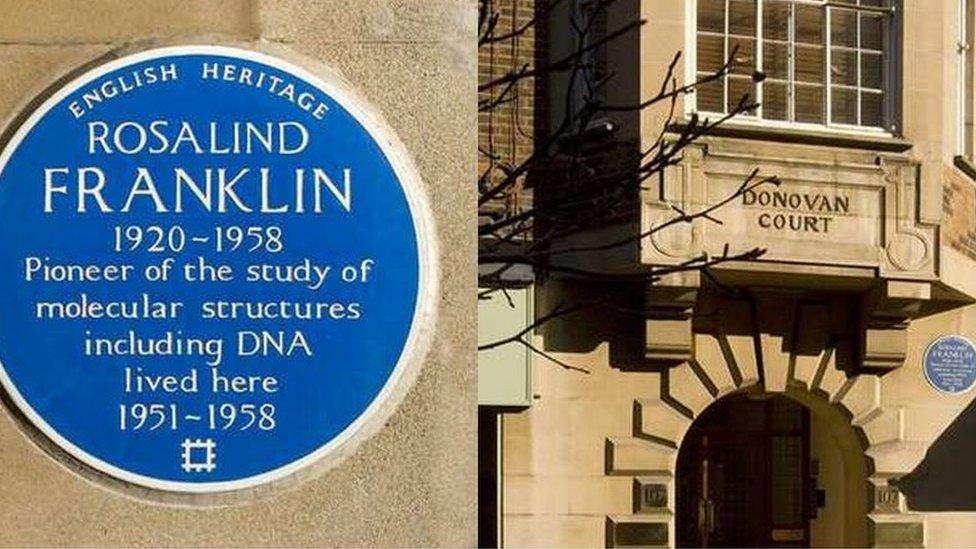Vandal adds Rosalind Franklin's name to Cambridge DNA blue plaque
- Published
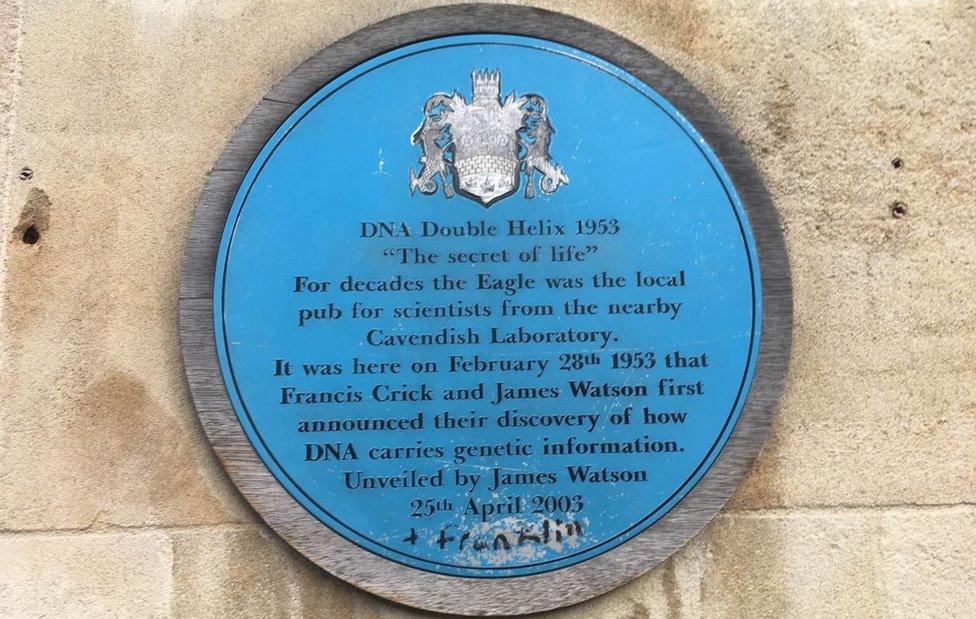
Someone has scrawled "+ Franklin" on the blue plaque on a Cambridge pub
A vandal has attacked a blue plaque marking a landmark DNA discovery by adding the name of a woman scientist who played a pivotal role alongside Cambridge University researchers.
Rosalind Franklin's name has been added to the sign on The Eagle pub, as the Cambridge News reported, external.
The plaque marks the moment in 1953 that Francis Crick and James Watson announced their discovery in the pub.
It was Franklin's X-ray photo that helped them to work out DNA structure.
The Eagle on Bene't Street in Cambridge was the "local" for scientists such as Crick and Watson, working at the university's Cavendish Laboratory.
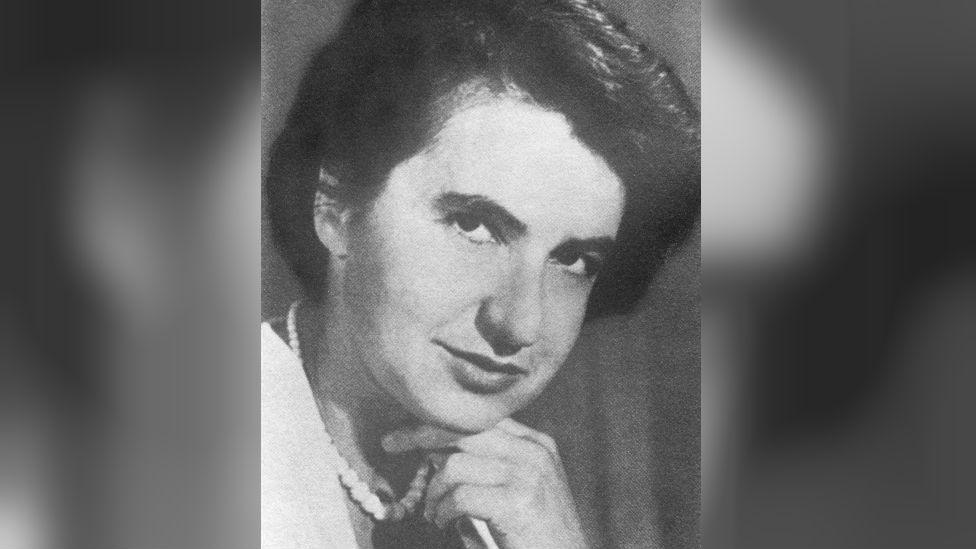
X-ray crystallographer Rosalind Franklin sent her photo to Watson and Crick
It was there in February 1953 they announced their discovery of how DNA (deoxyribonucleic acid) carries genetic information.
The plaque was put up outside the pub in 2003 by a voluntary organisation, Cambridge Blue Plaque Scheme.
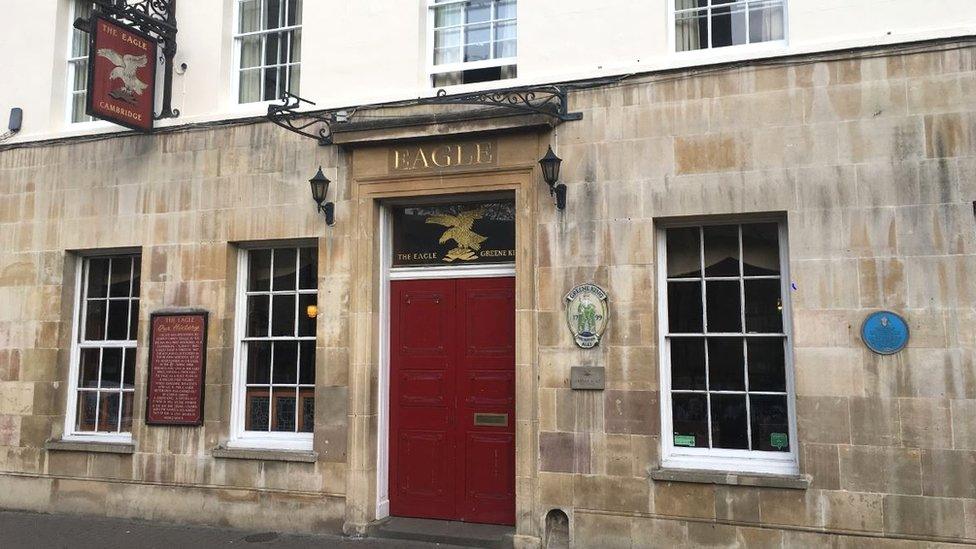
The pub was a regular haunt of scientists working at Cambridge University
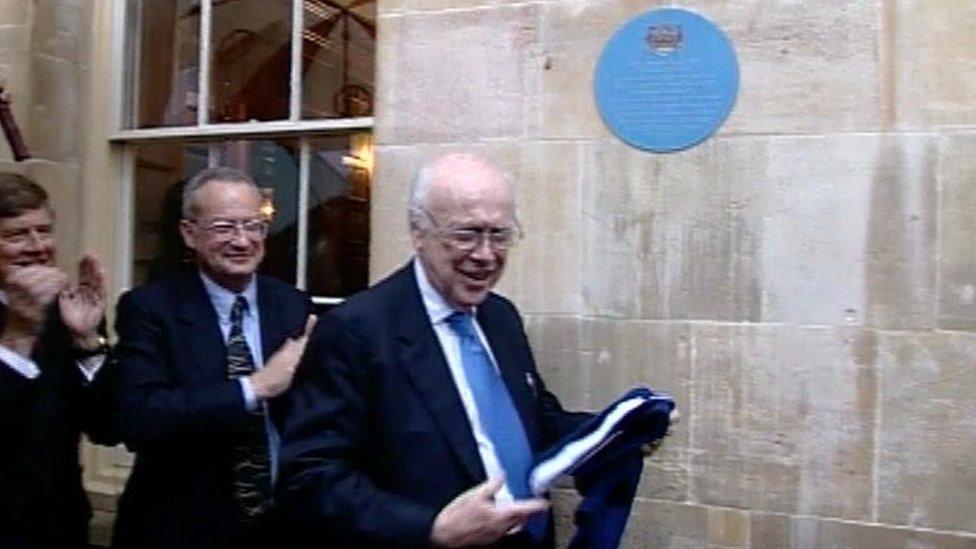
James Watson (r) returned to Cambridge in 2003 and unveiled the plaque on the 50th anniversary of his DNA discovery
However, Crick and Watson's discovery was made possible because of the contribution of Rosalind Franklin and Maurice Wilkins, who were studying DNA using X-rays.
Franklin produced an X-ray photograph that allowed Crick and Watson to work out the 3D structure of DNA - the double helix.
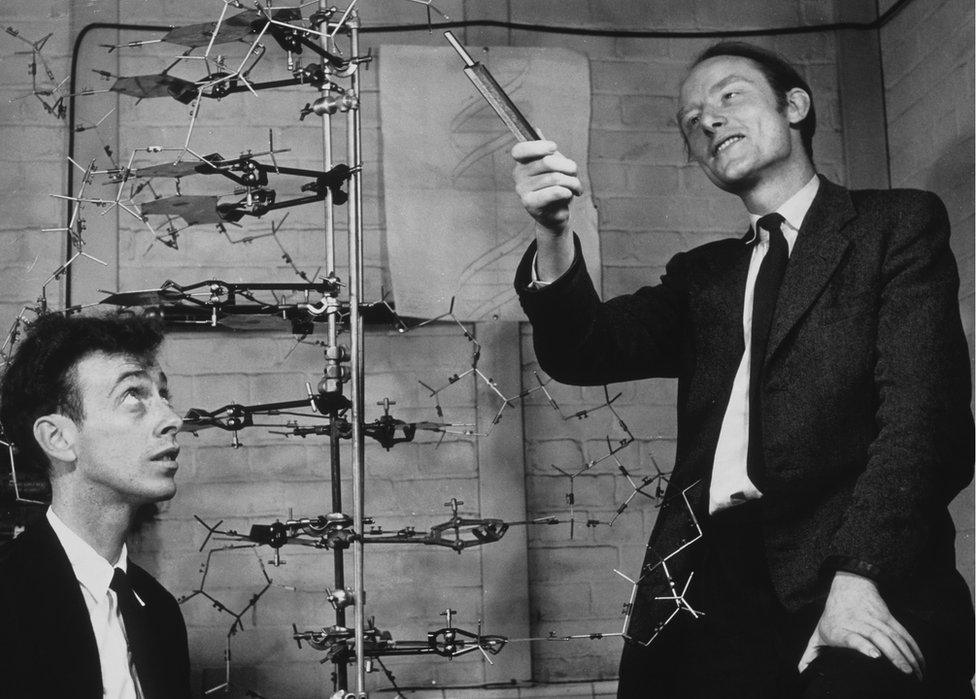
James Watson (l) and Francis Crick (r) with their model of part of a DNA molecule in 1953
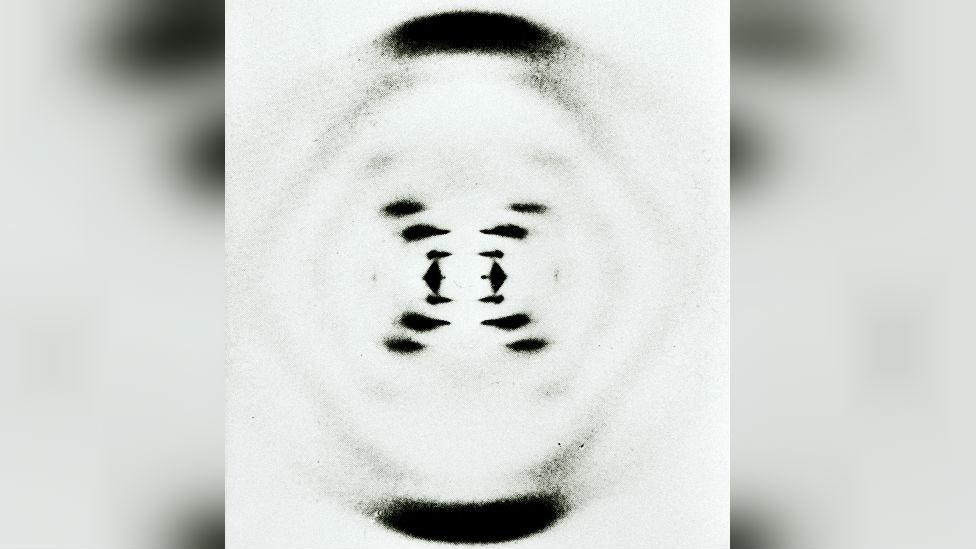
X-ray diffraction photograph of DNA obtained by Rosalind Franklin in 1953
In 1962 Crick and Watson, along with Wilkins, received the Nobel Prize in Physiology or Medicine for their discovery. Rosalind Franklin had died four years earlier.
Newnham College in Cambridge, where Franklin studied natural sciences in 1941, tweeted a response to news of the graffiti, saying: "Teacher: What did Watson and Crick discover? Pupil: Rosalind Frank's notes?"
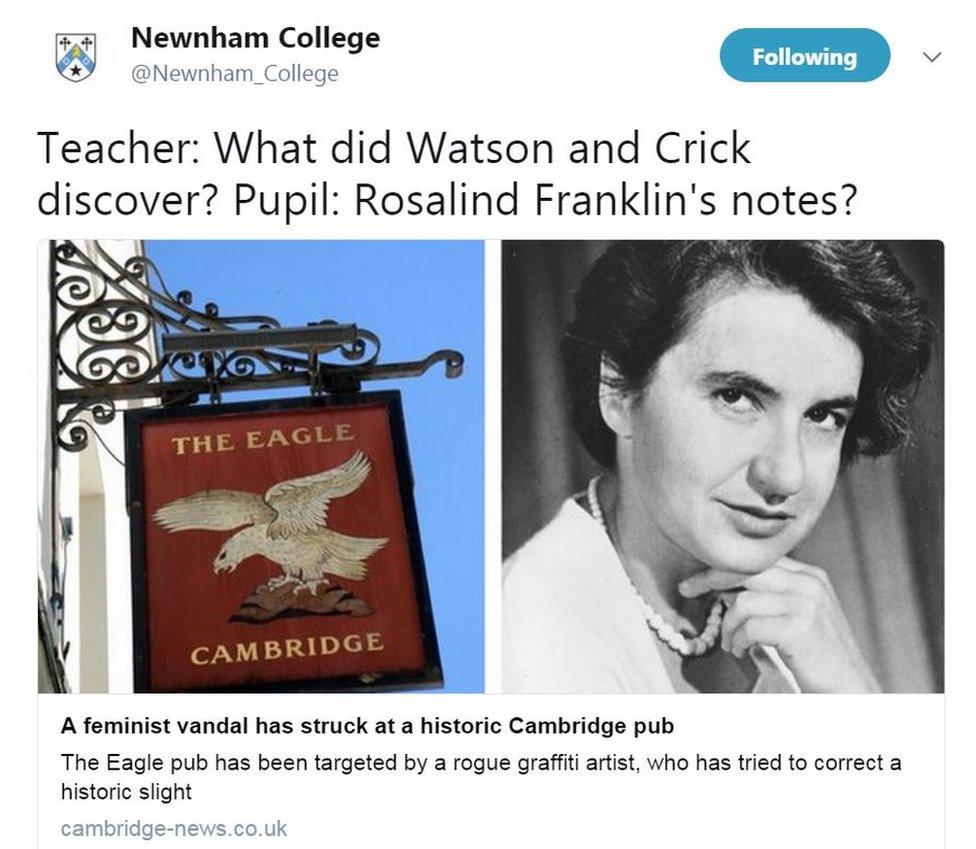
An English Heritage blue plaque on her one-time home in Chelsea, London, recognises her contribution to DNA research.
